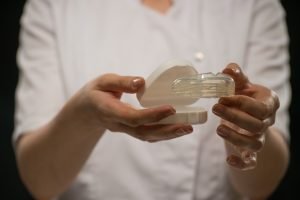 Physical activity is vital to an overall health regimen but can also be dangerous.
Physical activity is vital to an overall health regimen but can also be dangerous.
The Australian Dental Association notes that sports and some kinds of athletics can lead to tooth damage if appropriate oral protection is not used.
According to estimates, one-fifth of all Australian children have oral trauma by the age of 14.
A substantial chunk of that trauma occurs during sports or athletics.
My Local Dentists West Ryde believes mouthguards are an underutilised but indispensable piece of athletic gear for children, teens, and adults who participate in contact sports or athletics.
In response to sports-related dental injuries, the Australian Dental Association (ADA) and Sports Medicine Australia (SMA) collaborated to make mouthguards mandatory equipment for registered players in sports such as wrestling, boxing, hockey, football, martial arts, basketball, netball, and lacrosse.
Wearing a mouthguard while practising and playing helps avoid severe damage to gums, teeth, lips, and face.
Statistics prove how important mouthguards can be
- Mouthguards prevent over 200,000 injuries annually.
- Dental injuries caused by sports cause over 600,000 emergency room visits each year.
- Without mouthguards, athletes are 60 times more likely to sustain tooth damage.
- Athletes who use stock mouthguards are twice as likely to sustain a concussion as those who wear custom-built mouthguards.
That last point is essential – while mouthguards help, nothing helps as much as a custom-built mouthguard. We’ll get back to that in a bit. First, here are the elements needed for a perfect mouthguard.
A perfect mouthguard should:
- Protect, protect, protect
- Be comfortable yet stay firmly in place
- Allow normal swallowing, breathing, and talking
- Not lead to gagging
- Have no odour or taste
- Be thick enough (4 mm) to protect against impact
The essential functions of the mouthguard:
- Prevention of bruising and cuts during impact.
- Prevention of fractured teeth or dislocations
- Opposing teeth are kept from contact with each other.
- The lower jaw is protected against damage or fracture.
- Reduction of injury to the brain.
- Prevention against some neck injuries.
- Give athletes confidence they are protected.
What are the mouthguard options?
There are three types of mouthguards:
Stock mouth protectors are economical and can be purchased over the counter at most sporting goods stores and department stores. They are pre-moulded and advertised as ready to wear.
Because they are precast, almost nothing can be done to make them fit better. They make breathing and talking difficult, feel clumsy in the mouth and provide the least protection of all three mouthguards.
In some cases, they can cause damage themselves. Unanimously, dentists recommend custom-fitted mouthguards over stock mouthguards.
Boil and bite mouth protectors are available over-the-counter at many sporting goods stores. They are slightly better-fitting than stock mouth protectors.
The “boil and bite” mouthguard is constructed from a thermoplastic material that becomes pliable with heat.
The “boil and bite” is submerged in hot water to soften, then quickly placed into the mouth and shaped around teeth using tooth, finger, and tongue pressure.
This fits better than stock mouthguards but is inferior to custom-fitted ones.
Custom-fitted mouthguards are top-of-the-line mouthguards. They are individually designed for each athlete and manufactured in the dental office or a professional laboratory.
Your West Ryde dentist makes an impression of your teeth using a mould, and a mouthguard is then created from that model. A custom-made mouthguard is more expensive than the other two options due to the use of unique material and the time and effort required, but it provides far more comfort and protection.
In most cases, mouthguards cover upper teeth, but in some instances, depending on other protective gear, your dental condition, and your sport, your dentist will recommend a mouthguard for lower teeth as well.
Accessorise!
Custom mouthguards are constructed from scratch, which means they can feature fashion options that personalise the guard, such as team colours, names, animal characteristics, or other designs that reflect the athlete’s personality.
Taking care of your mouthguard
It’s essential to take good care of your mouthguard so it can keep protecting your teeth for a long time.
Here’s how:
- Clean it regularly: Wash your mouthguard in lukewarm, soapy water and rinse it well before and after each use. This helps keep it clean and free from germs.
- Brush it, too: For extra germ-fighting power, use a toothbrush and toothpaste to gently brush your mouthguard before and after wearing it.
- Keep an eye out: Check your mouthguard regularly for any signs of wear or aging. If it looks damaged or worn out, it’s time to replace it.
- For kids: If the mouthguard is for a child, remember that they grow quickly. So, their mouthguard may need to be replaced more often to fit correctly as they develop.
- Custom options: If you or your child play sports, consider getting a custom-designed mouthguard for the best protection. Visit us at My Local Dentist’s (formerly My Local Dentists West Ryde) to talk about getting a personalised mouthguard that fits just right.
Taking good care of your mouthguard can help ensure it does its job well and keeps your smile safe during sports and other activities.
My Local Dentists West Ryde Advantage
My Local Dentists West Ryde’s treatments and services are 100% personalised to you and your needs. Our dentists are highly motivated and accredited, having graduate degrees from the University of Sydney.
Alongside our dentists, the supporting staff at My Local Dentists West Ryde are tremendously dedicated and experienced to ensure that each visit with us is as pleasant as possible.
For more information about mouthguards, call us at (02) 9809 7000 or visit us at Shop 20 West Ryde Marketplace, 14 Anthony Road in West Ryde.
